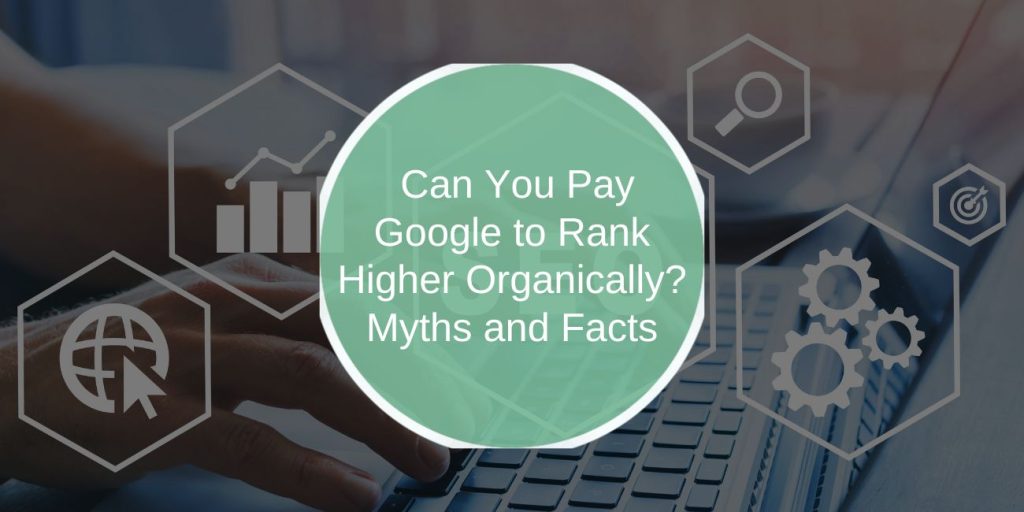Many website owners wonder if paying Google can boost their organic rankings. With so much misinformation online, it’s easy to see why this question comes up. In this article, we’ll explore how Google’s organic ranking system works, debunk common myths, and share ethical strategies to improve your website’s visibility.
Understanding Google’s Organic Ranking Algorithm: How It Works and What Matters
Google’s organic rankings are driven by complex algorithms designed to deliver the most relevant and trustworthy results for every query. Here’s how it works:
How Google’s Algorithm Works
Google analyzes web pages using numerous factors, including relevance, quality, and user experience. Some of the key elements are:
- Relevance to Search Intent: Google looks at how well your content aligns with what users are searching for. It evaluates the keywords you use and whether your content answers common questions.
- E-A-T (Expertise, Authority, Trustworthiness): Websites with credible content, backed by experts or authoritative sources, are more likely to rank higher. Google values well-researched articles with accurate information.
- Technical SEO: Factors like page speed, mobile-friendliness, and secure HTTPS connections play a big role in rankings. Websites that provide a smooth experience for users are rewarded.
The Role of Entities in Search
Entities are unique concepts, such as “Google Search Console,” “SEO,” or “Core Web Vitals.” Google connects these entities using the Knowledge Graph, a system that helps it understand relationships between terms. For example, when someone searches for “improving rankings,” Google might link related entities like “backlinks,” “structured data,” and “keyword optimization.”
Paid vs. Organic Search: Key Differences
Paid search involves running ads through platforms like Google Ads. These ads appear at the top of search results and are marked as sponsored. While paid search can drive immediate traffic, it has no direct impact on organic rankings.
Organic search refers to unpaid results that appear based on their relevance and quality. These rankings are achieved through SEO efforts, including content creation, technical optimization, and earning backlinks.
Myth: Paying Google can improve your organic rankings.
Fact: Google’s policies explicitly prohibit payments for better organic positioning.
Ethical SEO Strategies to Improve Your Organic Rankings
Since paying for organic rankings isn’t an option, ethical SEO practices are the best way to improve visibility. Here’s how:
1. Content Optimization
- Write content that directly answers user questions.
- Use primary and related keywords naturally to match search intent.
- Add structured data (schema markup) to help Google understand your content.
2. Build High-Quality Backlinks
- Earn links from reputable websites related to your niche.
- Avoid black hat tactics like buying links, as they can lead to penalties.
- Use internal linking to connect related content on your site.
3. Optimize Technical SEO
- Ensure your site is mobile-friendly and loads quickly.
- Use tools like Google PageSpeed Insights to monitor performance.
- Fix broken links and create an intuitive site structure to improve navigation.
Google’s Policies on Paid Manipulation: What to Avoid to Stay Compliant
Google takes search integrity seriously. Its Webmaster Guidelines clearly state that websites cannot pay for better rankings. Violating these rules can lead to penalties, such as lower visibility or removal from search results.
Common Manipulative Practices to Avoid:
- Buying Links: Paying for backlinks violates Google’s policies.
- Keyword Stuffing: Overloading a page with keywords reduces its quality and can hurt rankings.
- Cloaking: Showing one version of a page to users and another to search engines is considered deceptive.
Real-World Examples of Ethical SEO Success
Many businesses have improved their rankings through legitimate SEO efforts. For instance:
1. Local Businesses: Achieving Visibility with Location-Based Keywords
Local businesses often rely on geographic targeting to attract nearby customers.
For instance, a small bakery used ethical SEO practices by optimizing its website with location-specific keywords like “best cakes near me” and “custom birthday cakes in [city name].” This approach ensured that the bakery’s website appeared prominently in local search results.
Additionally, the business incorporated structured data for local SEO, such as Google My Business listings, to enhance its visibility on Google Maps and search results.
By aligning its content with local search intent, the bakery secured higher rankings and increased foot traffic to its shop.
2. E-Commerce Sites: Gaining Featured Snippets with Detailed Content
For e-commerce websites, product descriptions and user-friendly content are critical for ranking success. An online store selling electronics focused on creating detailed and unique product descriptions for its items, such as smartphones.
By targeting keywords like “affordable smartphones under $500” and adding value through comparison tables, specifications, and FAQs, the store gained a competitive edge.
The optimized content eventually earned a featured snippet in Google search results, showcasing the product as a top recommendation for budget-friendly smartphones. This ethical approach not only improved the website’s rankings but also boosted user trust and click-through rates.
These results demonstrate the effectiveness of ethical SEO practices without resorting to manipulative tactics.
